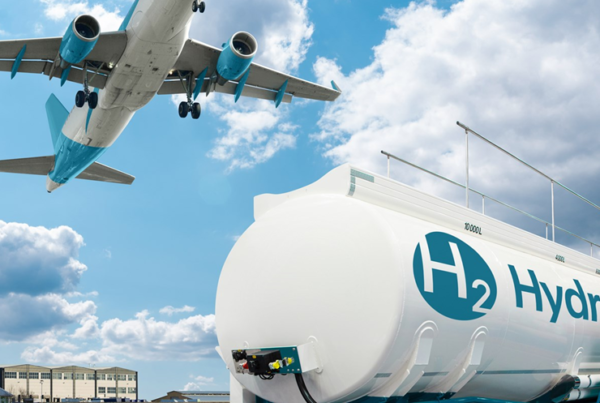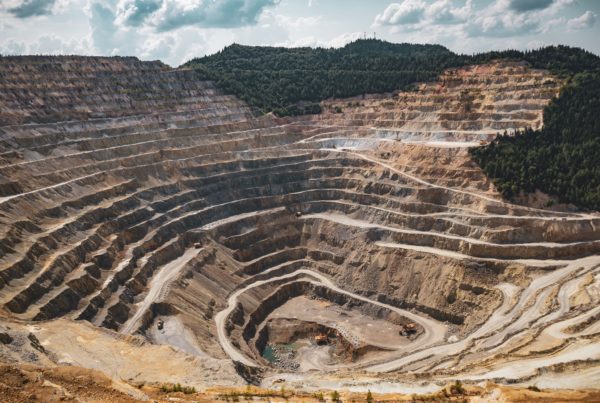
- Demonstration projects the first step to creating real demand for clean hydrogen fuel
- Canadian companies are pulling ahead in the race to reduce emissions from rail transportation.
As momentum builds for hydrogen as a low or zero-emission energy source, Calgary-based CP Rail and Burnaby, B.C.-based Ballard Power Systems are developing the first long-distance hydrogen locomotives in North America.
The $33.2-million project drew attention at this year’s COP26 climate summit in Glasgow, Scotland, says Scott MacDonald, CEO of Emissions Reduction Alberta (ERA).
“It really resonated with countries around the world,” he says.
“They all get it in terms of transportation. They’re all exploring the opportunities around hydrogen and this opportunity around locomotives everybody nodded their heads and said ‘oh wow that’s amazing’. It’s very, very exciting.”
Ballard helped build the world’s first commercial hydrogen fuel cell powered short-distance rail line, which started operating in China’s Guangdong Province in December 2019. It brings “a new zero-emission transit experience” to local residents, the company says.
In Canada, Ballard and CP are developing hydrogen fuel cell powered locomotives for long-haul, heavy loads. It’s a program that CP first announced in December 2020 and expanded in November 2021 after receiving $15 million in funding from ERA.
Global interest in hydrogen-powered locomotives is growing. Just this week, Texas-based BNSF Railway and partners Caterpillar and Chevron announced they will work together to “confirm the feasibility and performance of hydrogen fuel for use as a viable alternative to traditional fuels” in long-haul rail.
Also this week, Australian freight operator Aurizon and mining company Anglo American announced they will team up on a feasibility study that could lead to the development of a hydrogen fuelled heavy haul locomotive prototype.
In Canada, CP is going to build three. The work will “refine the process” of converting diesel-electric powertrains to hydrogen-electric powertrains for three categories of locomotive, which collectively represent most locomotives in use throughout North America, the company says.
Projects like this are important as the world becomes more serious about hydrogen as an energy source because they create demand that previously did not exist.
“There wasn’t demand because there wasn’t supply, and there wasn’t supply because there wasn’t demand,” says Alanna Hnatiw, mayor of Sturgeon County in central Alberta. She’s also chair of the Edmonton Region Hydrogen Hub, which launched in April 2021 with partners including ERA.
While there are major projects underway in Alberta for new hydrogen production, MacDonald says the demand piece is a critical part of the puzzle if it is truly to become part of the Canadian economy.
“What’s so exciting about the CP project is that it’s creating the demand,” he says.
“Transportation is Canada’s second largest source of GHG emissions, so the ability to transform the energy source for that sector will create the demand that will drive the supply side and create the customers that Alberta needs for the products that we can produce.”
The CP project is being expanded significantly with the additional funding from ERA. In addition to increasing the number of hydrogen locomotive conversions from one to three, CP will add hydrogen fuelling facilities at rail yards in Calgary and Edmonton.
In Edmonton, a small-scale hydrogen plant will use natural gas, built to accommodate potentially capturing greenhouse gas emissions in the future. In Calgary, the hydrogen will be produced from water, using renewable power from solar panels to produce zero greenhouse gas emissions.
“It creates the opportunity for Alberta to become a centre of excellence in this whole conversion technology,” MacDonald says.
“Locomotives are used around the world and if we can be involved in the conversion to prove out this technology there’s a huge economic opportunity in terms of the conversion but also creating a demand for the product that we can produce going forward.”
Source: Canadian Energy Centre Ltd.
Photo description: Working with Burnaby, B.C.-based Ballard Power Systems, CP Rail plans to convert three locomotives to run on hydrogen fuel cells. Photo courtesy CP Rail
Read the most up to date Fuel Cell and Hydrogen Industry news at FuelCellsWorks




